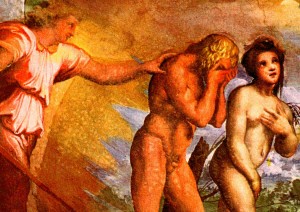Another way to state this is that God prefers the returns of free moral agents choosing goodness than the non-existence of evil. There are physical, material-world analogies that can be drawn that demonstrate this, but I can leave that to your imaginations.
A common objector might ask why couldn’t God create free moral agency without the possibility of evil. Lewis addresses that as well but the objection is nonsense if you dig to its core. To paraphrase Lewis, who I believe was paraphrasing someone else, nonsense is still nonsense even when we talk it of God.
It’s important to remember that by “preference”, I don’t mean an affection for trivialities, like how I prefer cheesecake to pie, but it can be more weighty, an in how most humans prefer a safe home over a turbulent environment. Essentially, we have preferences and act on them, and the books of the Bible seem to portray God as such a being.
So, using Lewis’ explanation, the proof can look like this.
- God is omnibenevolent.
- God is omnipotent.
- God is omniscient.
- God prefers free moral agents over automata in at least one universe-instance.
- God does not prefer evil.
- Evil exists.
- Therefore, God prefers prefers free moral agents over the non-existence of evil (4, 5, 6)
- Therefore, an omnibenevolent, omnipotent, and omniscient God can exist alongside the existence of evil.
Another thing to remember is this does not prove any of God’s ombi-properties. It only concludes that such a God is not impossible.
As a bonus I’ve posted a video of an N. T. Wright sermon on a different kind of theodicy. It’s lengthy and not easy listening but it’s worth it for food for thought. And both of these guys have (or had) British accents so you know their engine has gas in it*.
*I was wondering if the first video was actually Lewis speaking, but I don’t think it is. This video, described as Lewis’ only surviving BBC address, has Lewis with his Oxford drawl so I don’t think the theodicy video is him.
